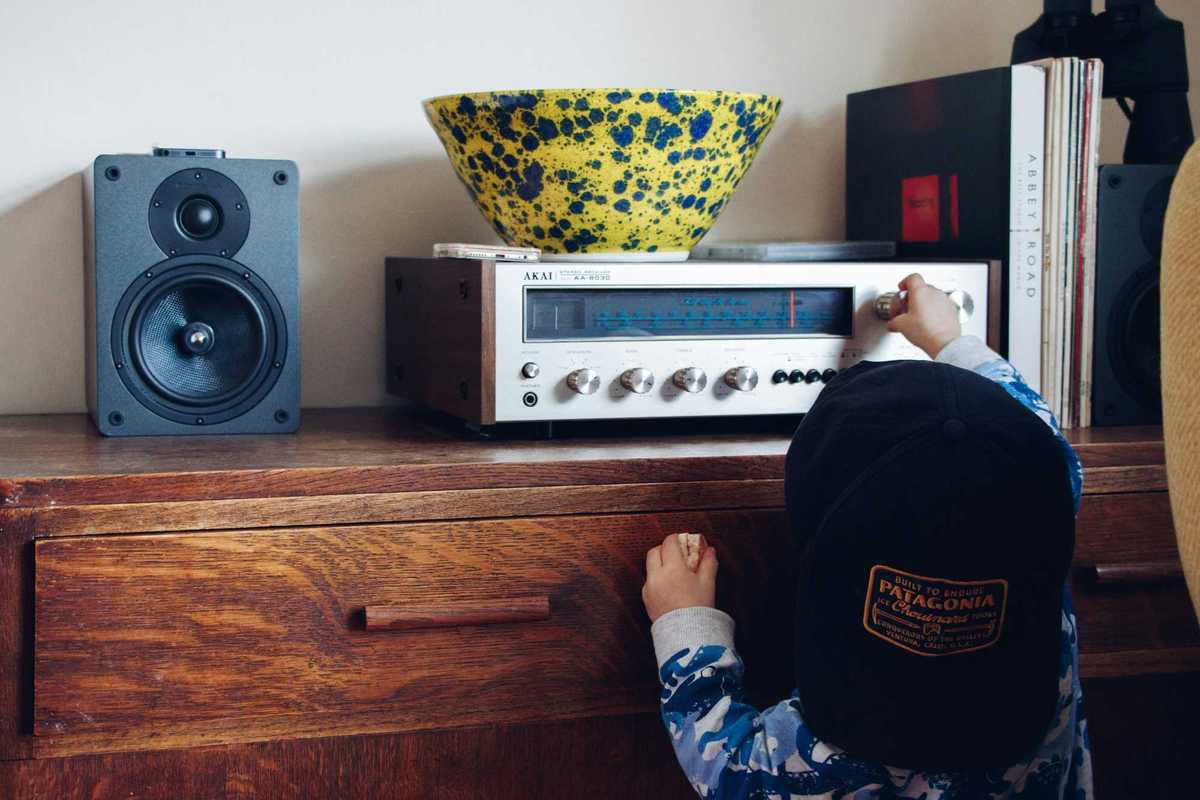
By External Source
The Top 10 Marketing Follies of 2020
As readers well know, the column is a big fan of Ad Contrarian Bob Hoffman. His blogs and books are fountains of useful info about the business, laced with a caustic viewpoint that is rarely matched in the profession. His latest newsletter, emailed to readers Sunday, points a sharp stick at the Top 10 marketing follies of 2020. At least, in Bob’s informed view. For now, he is no longer accepting new subscribers to his weekly blast, but you can take a look at some of his previous writings and peruse his website here.
2020 was the year the marketing industry zoomed its way to nowhere. Once again, we pretended to know what the hell we're doing, and the business community pretended to believe us. Hey, we're all in this together, right? Today we look back at some of the advertising and marketing foolishness that made 2020 such a comically horrible year.
In no particular order, here are my Top Ten Favorite Marketing Follies of 2020.
#1: Gwyneth Paltrow's Vagina Comes Up Roses
In January, the big marketing story was about Gwyneth Paltrow launching a new candle on her Goop website called "This Smells Like My Vagina." We should have known 2020 was going to be The Year of the Imbecile when the candle, priced at $75, immediately sold out.
I wrote at the time, "For the record, I have nothing against vaginas. As a matter of fact, I'm quite fond of the little guys. While I am by no means an expert on the subject, I do like to think of myself as a talented amateur. But let's get practical. If you need a candle, and you like the wonderful scent of vagina, why not go to the hardware store, buy yourself a candle for 99¢ then head over to a yoga class in Berkeley? You'll save 74 bucks and get all the vagina smell you'll ever need."
#2: Mark Zuckerberg Wants To Be Understood
If Mark Zuckerberg had grown up on your block he would've been known as "that creepy Zuckerberg kid." He would have been suspected of starting fires and torturing cats. Earlier this year he gave us a peek at what goes on under that disturbing haircut.
In a call with shareholders, the Z-Man announced "My goal for the next decade isn't to be liked but to be understood." Poor thing is misunderstood. My heart goes out...
I wrote at the time: "Can you imagine...the degree of self-absorption, the infantile self-pity that it takes to make such a statement?
I don't think Z-bag has to worry much about being liked. As for being understood, like all cheats and liars, the reason he is repellent is not because he's misunderstood. It's because he's understood all-too-well.
#3: Google Engineers Can't Figure Out Their Privacy Controls Either
We're not as stupid as we think! Well, you're not anyway.
You know how Google and friends keep feeding us horseshit about how easy it is to protect our data by using their privacy controls? And you know how when you try to use those privacy controls you get lost in an impenetrable vortex of bewildering options and incomprehensible terminology?
It turns out Google engineers can't figure this shit out either. Documents released in a lawsuit filed by the State of Arizona against Google this year revealed that Google engineers said...
- "The current UI feels like it is designed to make things possible, yet difficult enough that people won’t figure it out."
- "Add me to the list of Googlers who didn’t understand how this worked..."
#4: Uber Flushes $100 Million Down Online Ad Toilet
Among the many stories of clueless "performance marketers" getting their shorts swiped by the crooks who have colonized the programmatic advertising dreckosystem, my favorite came from Uber.
Kevin Frisch, the former head of performance marketing and CRM at Uber, told the tale of how ad fraud (specifically attribution fraud) ate at least $100 million of Uber's $150 million online ad budget...
"We turned off 2/3 of our spend, we turned off 100 million of annual spend out of 150, and basically saw no change..."
Most "performance marketers" have no idea how deeply they're being penetrated by online ad fraud. They don't even know where to look. They have no clue how untrustworthy or irrelevant the numbers they're getting are. Listening to Frisch tell his story brings it all to life.
Perhaps the most deeply disturbing aspect of his story was his description of how nobody gave 1/10 of a flying shit how much money was being pissed away.
#5. Mark Read Tells The Truth
Mark Read, CEO of WPP, the world's largest agency holding company, was guilty of the one unpardonable sin in the ad aristocrat handbook. He accidentally told the truth.
On a call with analysts in August, Read said... "the average age of someone who works at WPP is less than 30. They don’t hark back to the 1980s, luckily.”
In doing so, Read acknowledged out loud and in public something that ad industry hotshots have been denying for years -- their brazen flouting of laws forbidding age discrimination. Read then spent weeks stumbling in his underwear issuing feeble apologies and pretending that what he said wasn't really what he said.
The worst kept secret in the ad business is the enthusiasm with which agency honchos create fictitious rationales for getting rid of older, higher-paid employees. As a result, instead of having the best quality talent create their advertising, marketers have been conned into wasting billions of dollars on idiotic schemes concocted by bumbling amateurs and posers.
The demographic cleansing of experienced, talented people in favor of young, cheap people in the ad industry is not without its consequences:
- Marketers are virtually unanimous in believing that advertising is not as effective as it once was. - Consumer perceptions of the ad industry are at an all-time low.
- It is widely acknowledged that creativity in advertising has become abysmal.
- Ad fraud and the acceptance of unsavory practices have become normalized.
- The remarkable growth of streaming TV services illustrates that people will pay anything these days to avoid advertising.
#6: Facebook Removes A Few Accounts
This year the Financial Times reported that in the first 9 months of 2019 Facebook had to remove 5.4 billion (yes, with a b) fake accounts.
Assuming the rate of fraud continued into the 4th quarter, this would mean 7.2 billion fake Facebook accounts had to be removed in one year. That's about one fake account for every man, woman, child, and social media director on earth.
And that's just the fake accounts they found and acknowledged -- from an enterprise not famous for finding and acknowledging anything fake.
#7: Show Me The Money
It's 9 am. Do you know where your ad budget is?
In May, the ISBA (UK's equivalent of the US Association of National Advertisers) released a study conducted for them over a two year period by PwC that unambiguously laid out the absurd wastefulness of the hideous adtech "ecosystem." Highlights of the report:
- Fifty percent of all online media dollars are being siphoned off by the adtech - "ecosystem" before they reached publishers. According to the Financial Times, of the 50% of the budgets that are siphoned off, about 1/3 of the dollars "were completely untraceable." In some cases, the untraceable costs were as high as 83%. This means the money just evaporated into the adtech black box without a trace.
- Only 12% of the ad dollars were completely transparent and traceable. An astounding 88% of online ad dollars could not be traced from the buyer to the publisher.
But wait. It gets better. The researchers only studied results from the most sophisticated, most demanding advertisers like Disney, Unilever and Nestlé. “It’s important to realise that this study represents the most premium parts . . . the highest profile advertisers, publishers, agencies and adtech,” said the leader of the study from PwC. From the director-general of the ISBA, “The market is damn near impenetrable”
#8: Unfluencers
In March, The New York Times reported on a group of people who get everything about product success wrong. No, I'm not talking about MBAs.
I'm talking about consumers known as "harbingers of failure." These people are "a quirky subgroup of consumers who are systemically drawn to flops and whose...tastes can be used to forecast bad bets in retail sales, real estate and even politics."
These "harbingers" not only choose to buy products that are losers, they tend to move into neighborhoods that attract people like them. "Property values in harbinger ZIP codes consistently underperform the broader market." They also tend to support political candidates who are destined to lose.
The good news is that this disease isn't contagious. While they tend to cluster around each other, they don't seem to influence non-harbingers. “It’s not a contagious thing.” says Professor Catherine Tucker of MIT, one of the authors of the study, “It’s an inherent characteristic. They like that odd house. That political candidate everyone else finds off-putting. They like Watermelon Oreos.”
#9: Mondelēz Discovers Humans
Toward the end of 2020, Mondelēz, the company with the worst name in the history of bad names, added to their portfolio of lunacy by introducing "a unique approach" to marketing. They called it "Humaning." Yes, you're right -- you can't make this shit up.
According to Morondelēz, “Humaning is a unique, consumer-centric approach to marketing that creates real, human connections with purpose, moving Mondelēz International beyond cautious, data-driven tactics, and uncovering what unites us all. We are no longer marketing to consumers, but creating connections with humans.” Apparently, before the introduction of Humaning, Mondelēz was creating connections with squirrels and ducks.
The New York Times quoted your humble blogweasel on the subject of Humaning: "There is not another industry in the world that would tolerate this horseshit. In any sober industry the perpetrators of this nonsense would be taken out back by grown-ups and beaten to a pulp. Then they'd beat up on the pulp."
#10: BK's Award-Winning Moldy Whopper
The ad world spent February arguing, philosophizing, and hyperventilating over a campaign for Burger King's Whopper. The campaign centered around a Whopper which was left for 30 days to go all moldy, proving -- I don't know, something about preservatives.
I'm sure your average Burger King customer is terribly concerned about preservatives.
Advertising and marketing critics complained that the campaign would have the opposite of its intended effect by making the Whopper look repulsive and disgusting. Nonetheless, it was a big favorite among ad award grandees, none of whom, I guarantee, has ever been within smelling distance of a Burger King.
I am of a different opinion. I think the FTC needs to investigate Burger King as purveyors of false advertising. Compared to the real thing, the Moldy Whopper presents a falsely attractive image of the product.

















